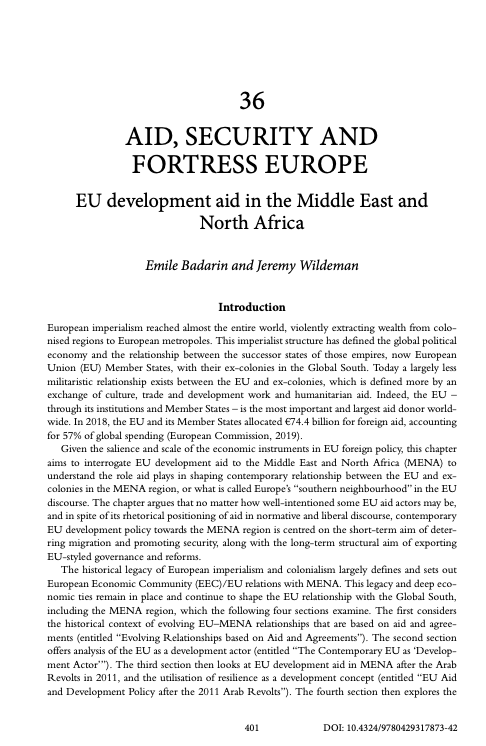This chapter interrogates EU development aid to the Middle East and North Africa (MENA) region after the 2011 uprisings/revolts to understand the role aid plays in shaping the contemporary relationship between the EU and ex-colonies in the MENA region. The chapter begins by noting the historical evolution of Europe’s relationship with MENA countries. As military forces and direct colonialism became unsustainable in post–World War II international politics, the EU used aid as a foreign policy device to maintain its influence in the Global South.
The chapter then locates aid in the EU’s contemporary foreign policy to demonstrate how aid is deployed to serve EU short-term priorities, especially regarding security and migration issues, as well as long-term objectives regarding institutional reforms that reflect the EU’s preferred style of governance in fields such as trade, the economy, security, law and migration. Finally, the chapter makes the case throughout its discussion that aid serves as an ideational understanding of the EU with the “Other”, where a long-standing asymmetrical relationship is coded within liberal phraseology.
Cite as: Badarin, Emile, and Jeremy Wildeman 2021. “Aid, security and fortress Europe: EU development aid in the Middle East and North Africa.” Routledge Handbook of EU–Middle East Relations. Routledge: 401-410.
